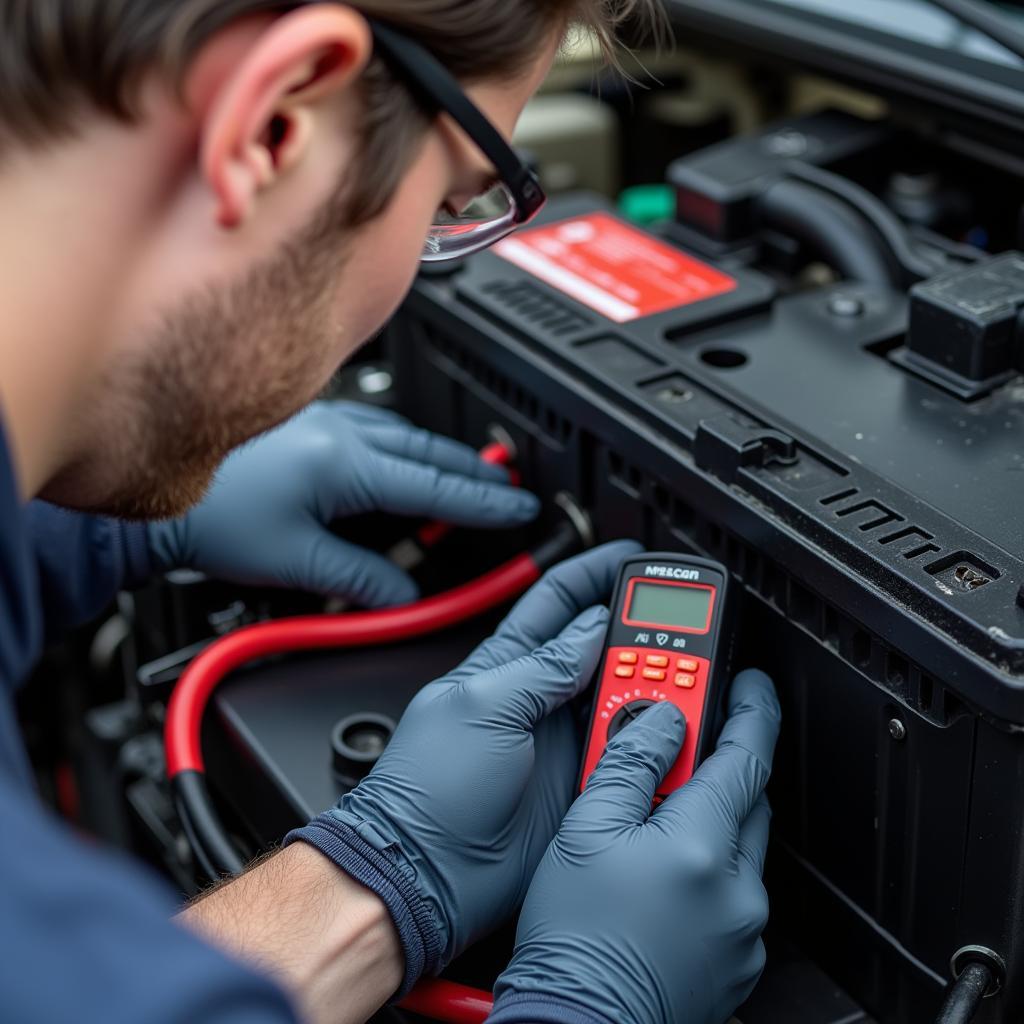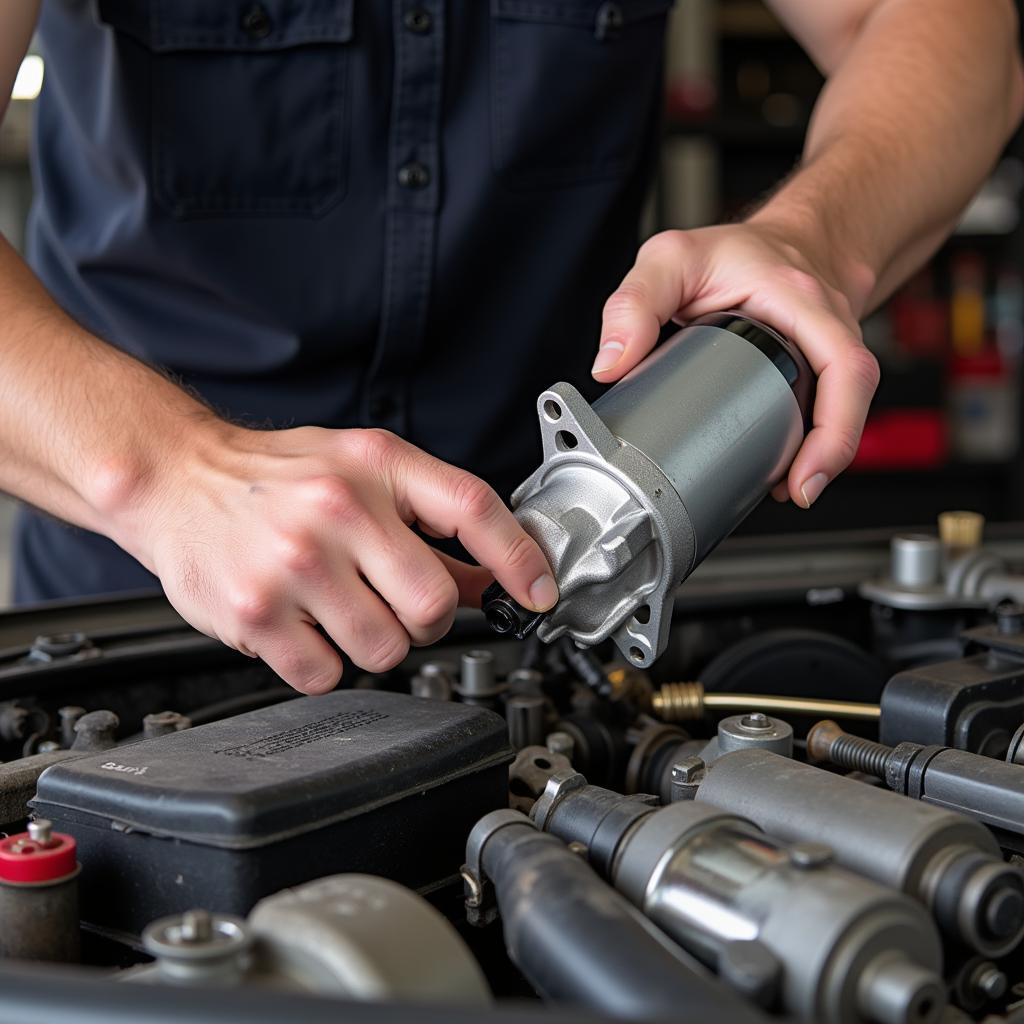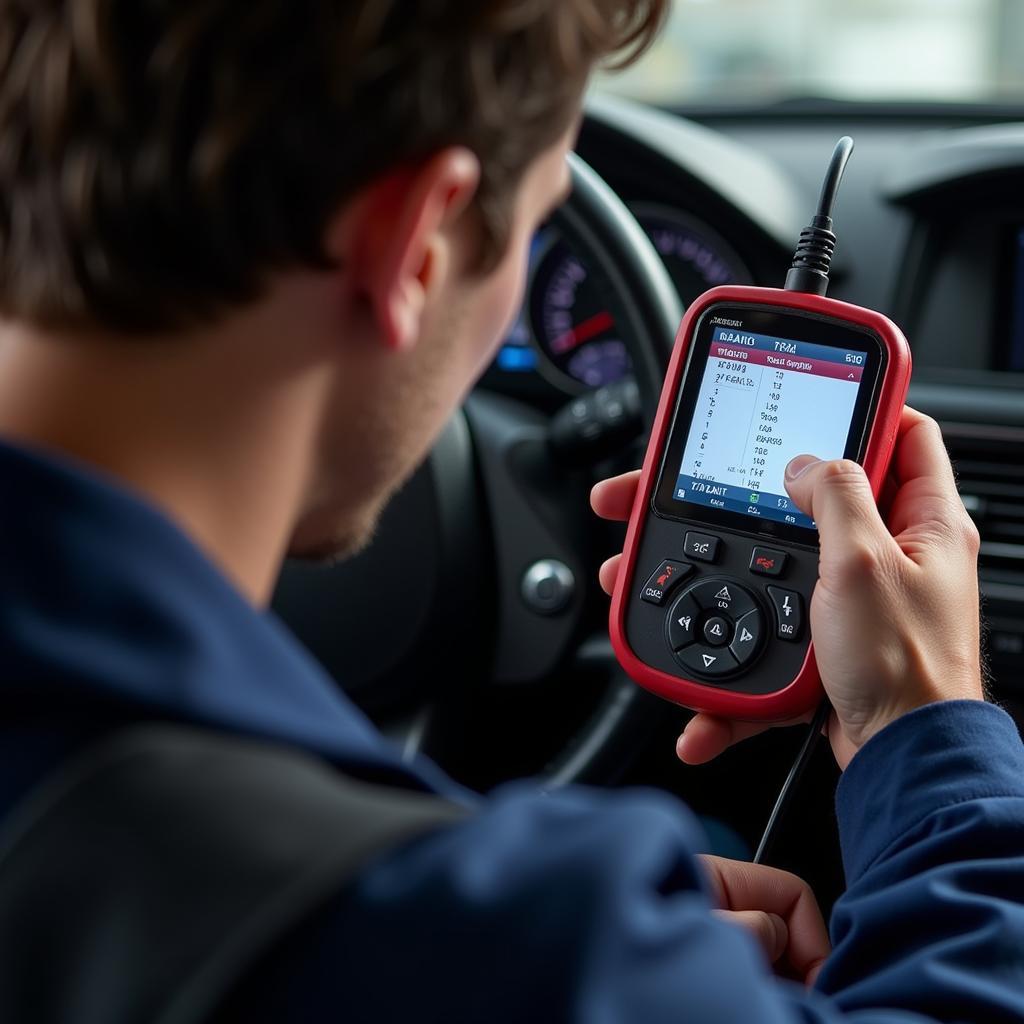Automatic Car Starting Problems can be frustrating and leave you stranded. Whether it’s a clicking sound, a slow crank, or complete silence, understanding the potential causes and solutions is crucial. This guide provides a comprehensive overview of common automatic car starting problems, empowering you with the knowledge to troubleshoot and fix the issue or effectively communicate with a mechanic.
One common cause of starting problems stems from a faulty transmission. More information about this can be found on our page discussing signs of a car transmission problem.
Common Causes of Automatic Car Starting Problems
Several factors can contribute to automatic car starting problems, ranging from simple fixes to more complex mechanical issues.
Battery Issues
- Dead Battery: The most frequent culprit. A dead battery won’t provide enough power to start the engine.
- Corroded Terminals: Corrosion on battery terminals hinders the flow of electricity.
- Loose Connections: Loose battery cables can prevent power from reaching the starter.
Starter Motor Problems
- Faulty Starter Solenoid: The solenoid engages the starter motor; if it fails, the engine won’t crank.
- Worn Starter Motor: Over time, the starter motor can wear out, leading to starting difficulties.
Fuel System Problems
- Empty Fuel Tank: While seemingly obvious, it’s a surprisingly common issue.
- Clogged Fuel Filter: A restricted fuel filter can prevent sufficient fuel from reaching the engine.
- Faulty Fuel Pump: A malfunctioning fuel pump can’t deliver fuel to the engine.
 Checking car battery for automatic starting problems
Checking car battery for automatic starting problems
Ignition System Issues
- Faulty Ignition Switch: A bad ignition switch can prevent power from reaching the starter.
- Worn Spark Plugs: Old or worn spark plugs can make it difficult for the engine to ignite the fuel.
If you’re experiencing issues with your car not moving, even when the engine starts, you might want to check our article on car transmission problem no move.
Other Potential Causes
- Alternator Problems: A failing alternator can prevent the battery from recharging properly.
- Wiring Problems: Damaged or corroded wiring can disrupt the electrical system.
- Security System Malfunction: A malfunctioning immobilizer can prevent the car from starting.
 Inspecting the starter motor for automatic starting problems
Inspecting the starter motor for automatic starting problems
Troubleshooting Automatic Car Starting Problems
- Check the Battery: Test the battery voltage and inspect the terminals for corrosion.
- Inspect the Starter: Listen for a clicking sound when turning the key. A clicking sound often indicates a starter problem.
- Check the Fuel Gauge: Ensure there’s sufficient fuel in the tank.
- Examine the Wiring: Visually inspect the wiring for any obvious damage or loose connections.
Having trouble parking your automatic car? Check out our guide on car parking problems.
When to Seek Professional Help
While some starting problems can be easily fixed, more complex issues require professional assistance. If you’re unsure about the cause of the problem or uncomfortable working on your car, it’s best to take it to a qualified mechanic.
 Mechanic diagnosing car starting problem with diagnostic tool
Mechanic diagnosing car starting problem with diagnostic tool
Preventing Automatic Car Starting Problems
Regular maintenance is key to preventing starting problems. This includes:
- Regular Battery Checks: Check the battery voltage and clean the terminals regularly.
- Routine Tune-Ups: Ensure the spark plugs, fuel filter, and other components are in good working order.
- Promptly Address Any Warning Signs: Don’t ignore any unusual noises or symptoms.
If you suspect issues with your clutch, our resource on car clutch plate problem symptoms might be helpful.
Conclusion
Automatic car starting problems can be a nuisance, but with a little knowledge and troubleshooting, you can often identify the cause and find a solution. By following the tips in this guide, you can get your car back on the road quickly. If you continue to experience difficulties, contact AutoTipPro at +1 (641) 206-8880 or visit our office at 500 N St Mary’s St, San Antonio, TX 78205, United States. We’re here to help you get back on the road quickly and safely.
For more general car problems and their symptoms, visit our page on most common car problem symptoms.
FAQ
- What is the most common cause of automatic car starting problems? A dead battery is the most frequent reason for starting issues.
- What does a clicking sound when starting the car indicate? A clicking sound often suggests a problem with the starter motor or solenoid.
- How can I prevent automatic car starting problems? Regular maintenance, including battery checks and tune-ups, is crucial for prevention.
- What should I do if I suspect a fuel system problem? Check the fuel gauge and, if necessary, have the fuel filter and pump inspected by a mechanic.
- Can a bad alternator cause starting problems? Yes, a failing alternator can prevent the battery from recharging, leading to starting difficulties.
- Is it safe to drive with a starting problem? It depends on the cause. If the problem is severe, it’s best to avoid driving and seek professional help.
- What should I do if I’m unsure about the cause of the starting problem? It’s always best to consult a qualified mechanic for diagnosis and repair.




Leave a Reply